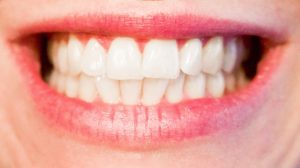
Do you or any family members suffer from headaches, sore facial muscles, jaw pain, insomnia, general stress, tooth soreness or sensitivity? These are all common signs of bruxism.
What is Bruxism?
Bruxism is the grinding of the teeth during sleep and clenching of teeth during wake time. It is excessive grinding or chewing beyond that of normal chewing movements. It can lead to significantly worn teeth that may cause permanent teeth and jaw joint damage.
Bruxism is most common in children and adolescents with a prevalence of up to 38%. Our gentle dentists provide dental care for children and can address teeth grinding and clenching in children.
This stereotypical clenching and grinding of teeth is also observed in adults.
What causes Bruxism?
Physical and psychological factors contribute to bruxism. In children, there is commonly the involvement of physical stress such as illness, nutritional deficiencies or dehydration. In adults, psychological stress such as anxiety and tension are often involved. Sleep bruxism which is characterised by the grinding of teeth at night time during sleep has been shown to be a sleep disorder. In addition, poor positioning of the teeth or jaws (including peaks in fillings) can lead to an improper bite and hence bruxism tendencies.
What are the symptoms of tooth grinding?
Being aware of the signs and symptoms of bruxism can help you and your family determine if tooth grinding or clenching is a potential source of tooth damage for you or your family.
The signs and symptoms of bruxism include:
- Experience of teeth sensitivity to heat and cold with associated pain
- Chronic facial pain and tension headaches resulting from the intense muscle contraction
- Grinding noise that occurs as the teeth are ground together can be heard by others near/next to you.
- The outer protective surface of the tooth, called enamel may became worn and damaged, exposing the underlying yellow dentine layer.
- The teeth may become broken or chipped
- Loosening of teeth with possible damage to tooth sockets
- Stiff and sore jaw joint muscles causing restricted opening of the mouth and difficulty with chewing.
- Damage to the jaw joint (the temporo-mandibular joint) by this grinding or clenching movement
- General jaw joint pain or ear ache
- Tension headaches cause by teeth clenching
Often people are unaware that they suffer from bruxism, especially in mild cases where the only symptom is worn teeth. The signs and symptoms can vary markedly between individuals and reflects the severity of the clenching and grinding behaviour involved in bruxism.
If you or your family is unsure whether there might be any potential signs of worn teeth from teeth grinding or clenching, please make an appointment on (03) 9870 8243 with one of gentle family dentists at East Ringwood Dental Clinic.
